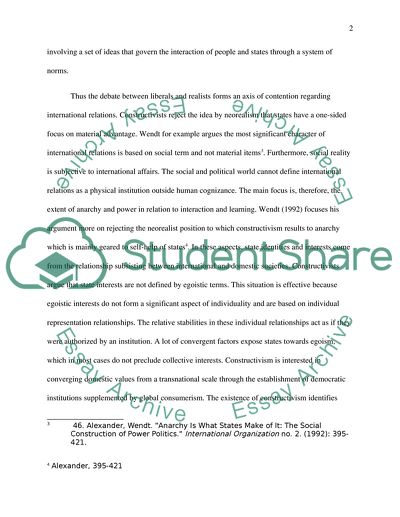Cite this document
(“Constructivism and international relations Essay”, n.d.)
Constructivism and international relations Essay. Retrieved from https://studentshare.org/social-science/1689035-constructivism-and-international-relations
Constructivism and international relations Essay. Retrieved from https://studentshare.org/social-science/1689035-constructivism-and-international-relations
(Constructivism and International Relations Essay)
Constructivism and International Relations Essay. https://studentshare.org/social-science/1689035-constructivism-and-international-relations.
Constructivism and International Relations Essay. https://studentshare.org/social-science/1689035-constructivism-and-international-relations.
“Constructivism and International Relations Essay”, n.d. https://studentshare.org/social-science/1689035-constructivism-and-international-relations.


